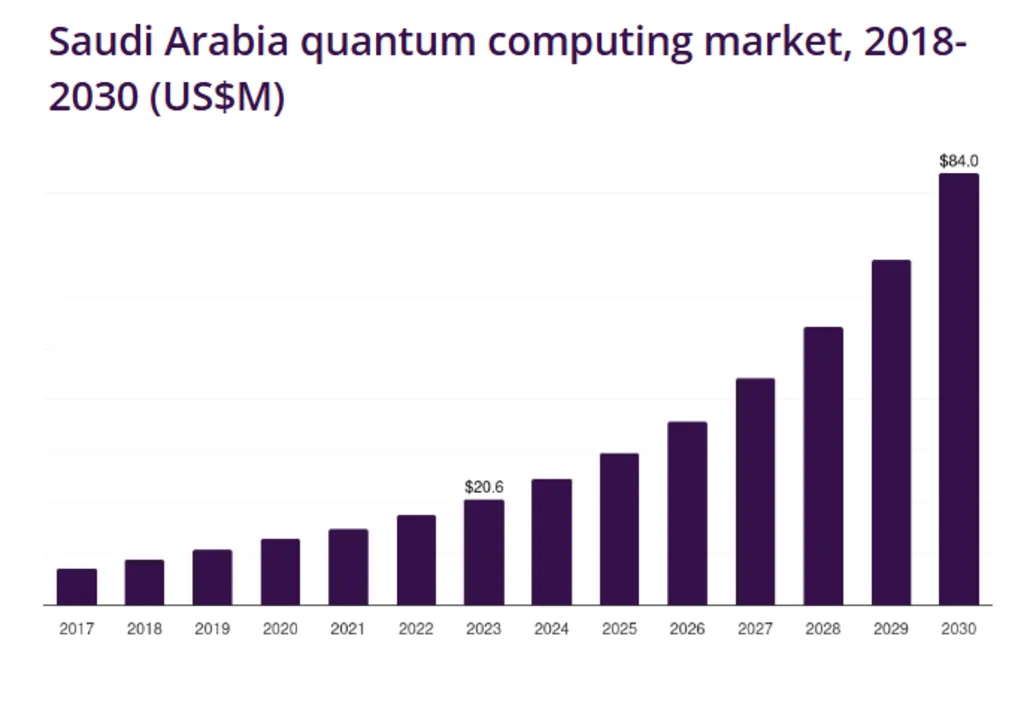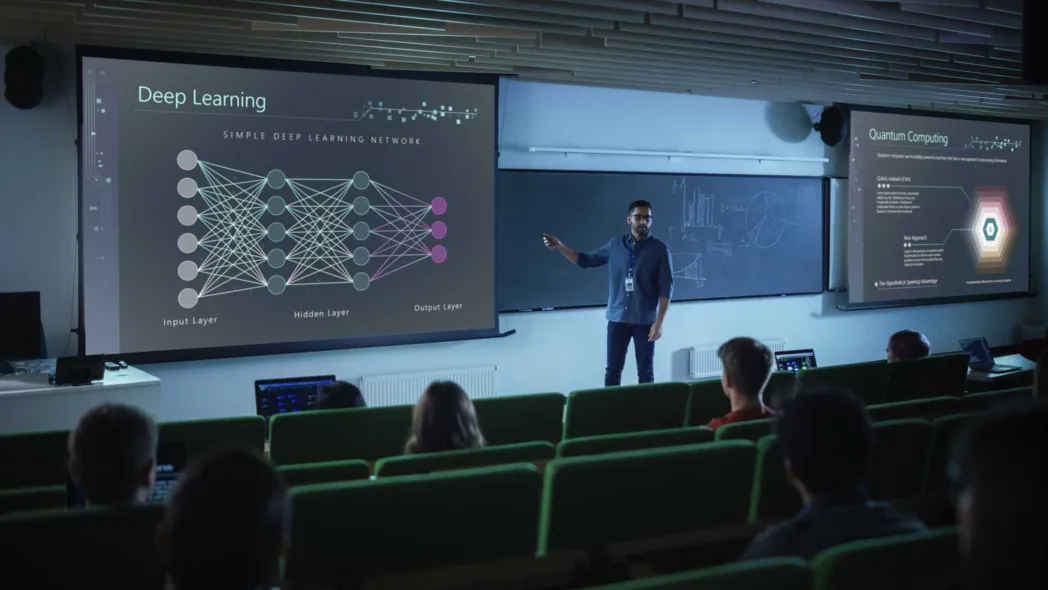Saudi Quantum Computing Market Revenue to Hit USD 84M by 2030
The Saudi Quantum Computing Market is no longer theoretical, but it’s still early-stage. What sets it apart is the Kingdom’s deliberate shift from exploration to execution—anchored by real deployments like Aramco’s quantum computer, strategic alliances with IBM and Pasqal, and a national blueprint that aligns with Vision 2030.
While the market size remains modest at USD 24.6 million in 2024, the pace of infrastructure-building, talent development, and cross-sector collaboration suggests Saudi Arabia is laying serious groundwork for long-term quantum leadership.

Saudi Arabia’s quantum computing market generated USD 24.6 million in revenue in 2024 and is projected to reach USD 84.0 million by 2030, growing at a CAGR of 23.2%. Source: Grandview
Systems Lead in 2024, But Services Will Outpace by 2030
In 2024, system offerings, including quantum hardware and integrated platforms, dominated the Saudi market, accounting for the largest revenue share. However, services are poised to become the most lucrative segment, registering the fastest growth rate through 2030. This shift reflects a broader global trend: as quantum systems mature, demand for consulting, algorithm development, and cloud-based quantum access is accelerating.
Saudi Arabia’s pivot toward service-led quantum growth signals a maturing ecosystem that values scalability, accessibility, and real-world application.
Infrastructure and Partnerships Fuel Saudi Quantum Expansion
Saudi Arabia’s quantum strategy is deeply rooted in cross-sector collaboration. In May 2024, Saudi Aramco partnered with Pasqal to deploy the Kingdom’s first quantum computer. Simultaneously, Aramco and IBM launched an innovation hub to explore quantum’s potential in energy optimization and beyond.
Meanwhile, NEOM and Arqit are developing quantum-secure platforms to protect futuristic smart cities. These partnerships lay the groundwork for a quantum foundry, a centralized facility for device fabrication, testing, and commercialization.
Such infrastructure investments are critical to scaling the Saudi Quantum Computing Market and attracting global talent and capital.
Talent Development Anchors Saudi’s Quantum Roadmap
Saudi universities are stepping up to build a quantum-ready workforce. Institutions like King Fahd University of Petroleum and Minerals now offer specialized courses in quantum computing, sensing, and communications. The Kingdom’s multi-pronged approach includes:
- Curriculum integration at undergraduate and graduate levels
- Quantum hackathons to foster hands-on experience
- Partnerships with organizations like Tuwaiq Academy
- Certification programs to upskill professionals
- Public seminars to raise awareness and inspire future talent
To meet global demand, Saudi Arabia must continue scaling professional training and talent attraction strategies. A robust talent pipeline will be essential to sustain the 23.2% CAGR projected for the Saudi Quantum Computing Market.
Quantum for Society: Saudi’s Vision Beyond Tech
Saudi Arabia isn’t just investing in quantum for economic gain, it’s positioning quantum as a tool for societal transformation. Through initiatives like the Quantum for Society Challenge on the UpLink platform, the Kingdom is encouraging startups and researchers to tackle climate modeling, drug discovery, and cybersecurity using quantum solutions.
Events like World Quantum Day 2024 have helped demystify quantum concepts and inspire public engagement. By cultivating a quantum-aware society, Saudi Arabia is laying the cultural and educational foundation for long-term innovation.
Saudi Quantum Computing Market: A Blueprint for Regional Leadership
Backed by a national roadmap, billion-riyal partnerships, and a fast-expanding talent base, the Saudi Quantum Computing Market is evolving from pilot projects to foundational infrastructure. If momentum holds, quantum won’t just support the Kingdom’s future economy, it will help define it.
As the market heads toward USD 84.0 million revenue by 2030, Saudi Arabia’s holistic approach spanning infrastructure, education, and commercialization, offers a compelling blueprint for other nations navigating the quantum frontier.







